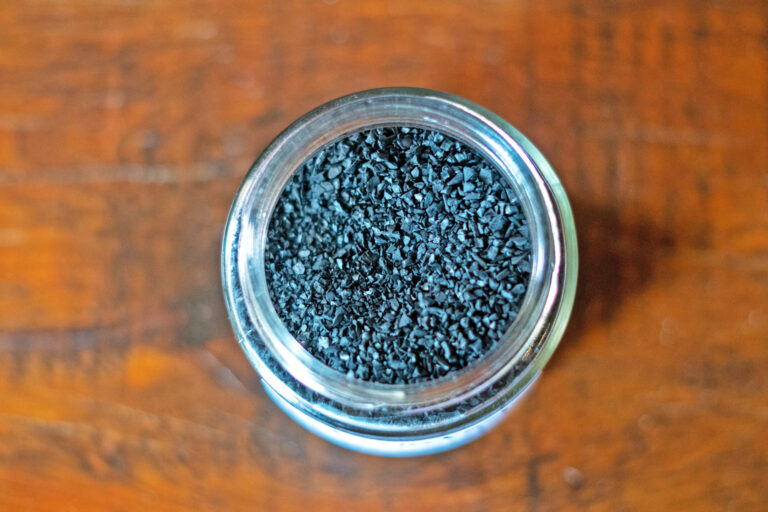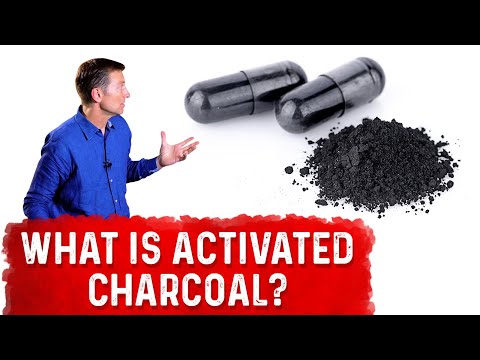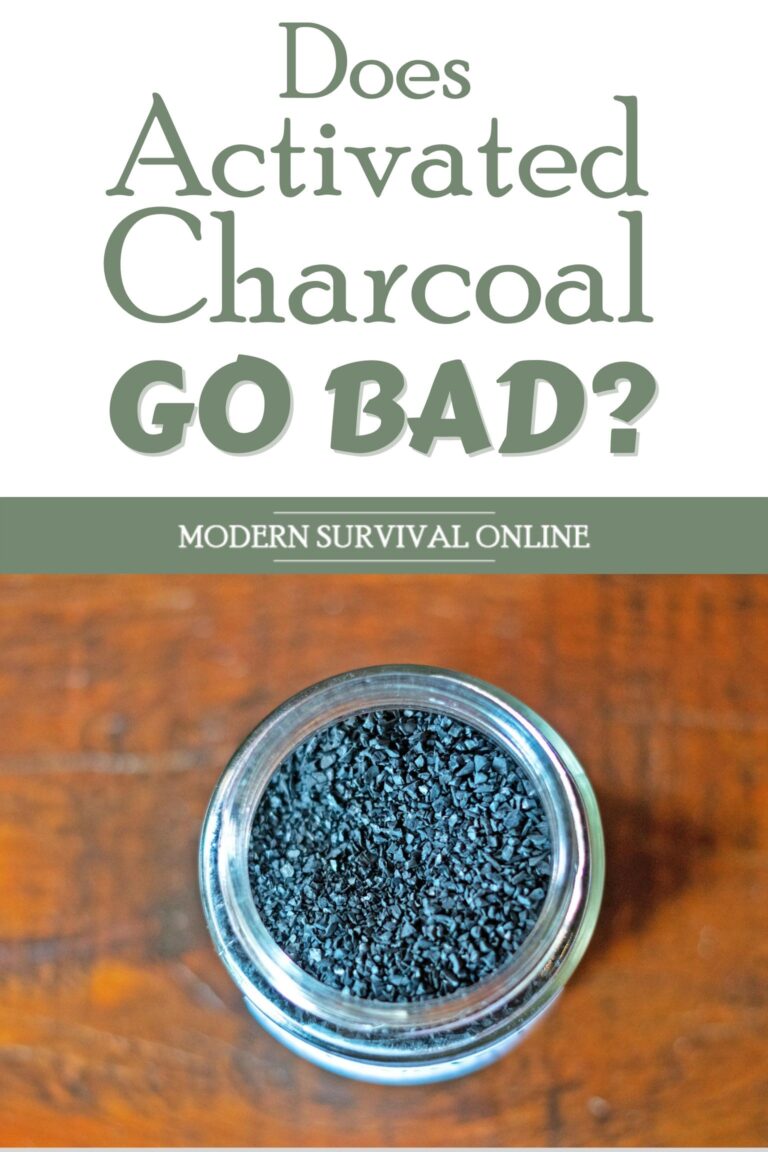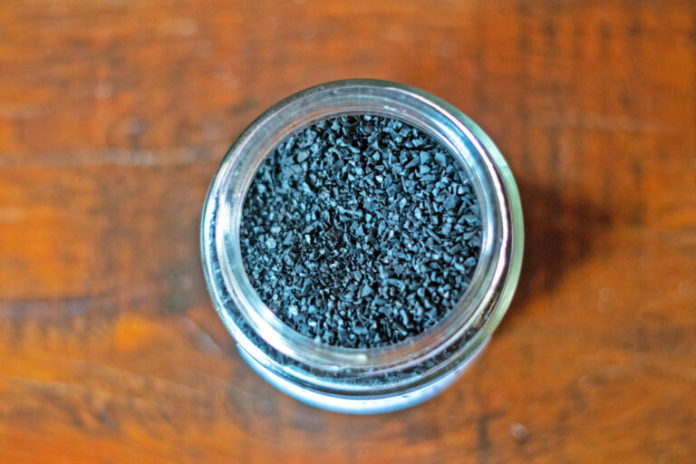Activated charcoal is a substance that is wondrously effective at absorbing even trace amounts of other materials. From the air, from the water, it does not matter.

This is why it is such a fixture in all sorts of filters, but also when used as medicine to reduce or eliminate the accidental ingestion of certain poisons and other toxins.
Accordingly, this is something many folks want to keep on hand in their stash. But long term storage means rotation is a concern.
Does activated charcoal go bad? The answer to this question is a little complicated.
Activated charcoal itself does not expire, but any products that contain it as an ingredient might. Additionally, activated charcoal can lose its potency and effectiveness over time if it’s exposed to air, moisture, or any other sources of contamination.
All filters and other items containing it should be stored sealed for this reason.
Activated charcoal is found in many of the items that preppers depend on for disaster and emergency preparedness, and it is also something you will want to have on hand in quantity for other purposes.
In this article, we’ll answer all of your questions about the shelf life and longevity of activated charcoal.

What is activated charcoal?
Activated charcoal is a substance that has been treated or activated through extreme heat (physically) or via other substances (chemically) to open up countless tiny pores and crags on each particle.
This results in an unbelievable surface area which allows it to adsorb (not absorb!) comparatively huge amounts of toxins and other materials.
Quick science note: Adsorption is different from absorption in that the former binds substances to its surface, while the latter actually takes substances into itself.
Practically, most folks say absorb when talking about activated charcoal.
Activated charcoal is such a highly effective adsorbent that it is no wonder it is so widely used in water- and air filtration systems.
Its large surface area makes it peerless for trapping impurities, and its high capacity means that it can effectively remove contaminants for a long time before it is “spent”.
Activated charcoal filters (or filters containing an activated charcoal stage) are often used in conjunction with other ultra-high efficiency filtration methods such as reverse osmosis.
This is to further improve water quality. Activated charcoal is also present in many air filters for use with respirators, gas masks, and other safety gear.
It definitely has a lot to recommend, but how long will activated charcoal last in use or in storage?
Activated Charcoal Itself Does Not Expire
The good news is that activated charcoal itself does not have an expiration date.
This means that it will not “go bad,” decay, or rot in the traditional sense of the word. However, there are a few things that can occur over time that will make it less effective.
When stored properly, activated charcoal can last indefinitely.
But if it is exposed to air, moisture, or other sources of contamination, its surface area will gradually, slowly become filled up with impurities present in either and its capacity will be reduced.
For this reason, it is important to store all filters and products properly. More on that in the next section.
Water filters containing activated charcoal will also begin to slowly degrade over time after their first use, whether or not you use them regularly after that.
Yes, more frequent use will wear them out faster but all such filters have a limited lifespan after being used. Particularly, microbial growth can become a problem in stored water filters, ruining them.
This is why it’s important to follow the manufacturer’s recommendations for storage and replacement.
So even though the activated charcoal itself does not go bad or “spoil” over time, the products that contain it and depend on it for function do.
When that happens, they are no longer effective at eliminating impurities and toxins from air or water. So, if you have any items that use it, be sure to check the expiration date.
The Best Way to Store Activated Charcoal
To get the longest possible shelf life and effectiveness out of your activated charcoal (or products that contain it), it is best to store it in a tightly sealed container in a cool, dark place.
If it came from the factory with a seal on the container, leave it in place until you need it. Keeping it in a cabinet or drawer away from any sources of heat or light is ideal.
If you are storing it for emergency preparedness purposes, be sure to include an indicator on the outside of the container with the date you purchased or placed it into storage.
This will help you keep track of how long it has been stored so that you can rotate your stock as needed.
You should also check your containers periodically for any signs of leakage or damage which could allow contaminants to enter and ruin the charcoal.
Once opened, a package of activated charcoal should ideally be used within a few months for best results.
If you want to keep it longer than that, know that it should still work if you took care in storing it, but remember it will slowly start picking up contaminants from the air and from moisture present in the environment.

How to Tell if Activated Charcoal Has Lost Potency
Unfortunately, there is no sure way to know whether or not your activated charcoal has lost its effectiveness outside of using it and seeing if it works as expected.
You might notice that water from your home supply begins to taste bad or smell odd when your filter is low on life.
Similarly, for air-filtering products that rely on activated charcoal, you could notice a decline in air quality. This will obviously inform you of the status of the filters in either case!
However, neither eventuality is acceptable when activated charcoal is being used for serious purposes when life may hang in the balance.
A bad filter in your portable emergency water filter could see you become very sick after ingesting dangerous germs, for example. A dud air filter might expose you to deadly gasses or other chemicals.
It is always best to err on the side of caution and replace activated charcoal filters according to their manufacturer’s projected lifespan, used or unused, in any of your emergency or disaster preparedness supplies.
Activated Charcoal Cannot Be Reactivated at Home
Also, contrary to popular belief, activated charcoal will not “recharge” or “regenerate” itself if heated in your oven at home.
While this can be done in a lab or factory setting with truly extreme temps (1,700°F+), an average person cannot do it safely or reliably.
For your purposes, if your activated charcoal has been exposed to contaminants or “gone bad,” the only way to make it effective again is to replace it.
The Bottom Line
Activated charcoal does not expire, but products that contain it can expire or become less effective over time.
Be sure to store it in a tightly sealed container in a cool, dark place and check it periodically for any signs of leakage or damage.
Once opened, a package of activated charcoal should be used within a few months for the best, surest results.
If you want to keep it longer than that, know that it should still work, but remember it will slowly start picking up contaminants over time, losing effectiveness.



